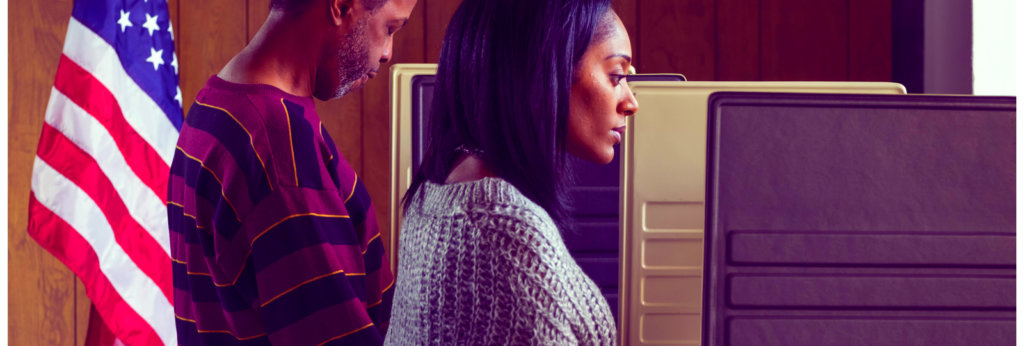While White liberals are calling recent Black voter turnout a saving grace, Black women must reiterate: Our vote is OURS.
This article was made possible because of the generous support of DAME members. We urgently need your help to keep publishing. Will you contribute just $5 a month to support our journalism?
As of Tuesday, December 11, simply listening to Black women is the latest way one can position oneself as a participant in The Resistance.
When Doug Jones defeated Roy Moore in a narrow victory for the Alabama Special Election Senate race, the exit polls showed that, once again, Black women are the reliable base of the Democratic party, with 98 percent of the vote in favor of Jones, despite attempts to disenfranchise voters with voter-ID regulations. I presume the other 2 percent to be of relation to Clayton Bigsby.
By Tuesday night, Black women were deified, exalted to savior status, and a Twitter trending topic.
“Put black women in charge,” the tweets read again and again and again, with some even putting out false hopes for a Michelle Obama 2020 presidential campaign.
But what is control without power?
What does it mean for Black women to be put in charge by someone else, to have power conferred to them, instead of something we independently assert and claim for ourselves? What does it mean when Black women are positioned as some kind of political defender of the faith, charged with the task of righting injustice and improving the lives of everyone else, while we are “300 percent more likely than White women to die” trying to bring life into the world, according to the Center for Reproductive Justice?
The selective visibility of Black women, the acknowledgment of our value when it best suits a bottom line is not new. In fact, it’s traditionally American. But be clear, Black women voted to save themselves, not Alabama. Not the country. The good faith decision-making, the righteous dissent that’s suddenly in vogue, comes from generations of knowing that no one will protect us but ourselves, and not being afforded the luxury of second chances.
Who advocates for Black women when they are excluded from leadership roles, despite being “ready to lead,” and in active pursuit of leadership roles in the workplace according to a report by the The Center for Talent Innovation (CTI)? According to the large and growing database of Black women running for office more than 100 Black women are campaigning next year. Will we see viral-Twitter levels of support for them?
This in comparison to White women, who are reportedly less likely to pursue leadership positions and comparatively indifferent to acquiring seats of power. This, as the wage gap hits Black women at $0.63 on the dollar, compared to women’s $0.80 national average. The realities reframe Sheryl Sandberg’s “lean in” campaign as a myopically focused conversation to be had among White women, who, as the the polls indicate, routinely abdicate responsibility, so much so that 63 percent of them voted in favor of a candidate who says they shouldn’t be able to run for elected office themselves, much less vote.
Since Tuesday, Black women have been positioned as selfless heroes; we are the ones who will save America from her baser self. Our votes are seen as altruistic, moral, and collective, with a sensitivity to knowing what’s good for the country—what’s right for everyone else—and acting on that instinct. This narrative robs us of our agency and recognition of our history of self-actualization, even en route to gerrymandered polls targeted for voter suppression.
What’s worse, this self-interested appreciation coexists blindly alongside the prevailing stereotype that Black women are angry or otherwise pathologically dysfunctional, incapable of making good decisions in our own lives.
Ours is the same voice that is ignored in boardrooms and doctor’s offices, in media and in the courts, in discussions where we’ve been told that we are “playing the race card,” in 2016 when White women lectured us about the need to put our gender before our race, and even in the classrooms of our girlhoods. It has been cultivated over generations; and it is ours. Try as you might to frame it as anything but, and I promise you: We will resist.
